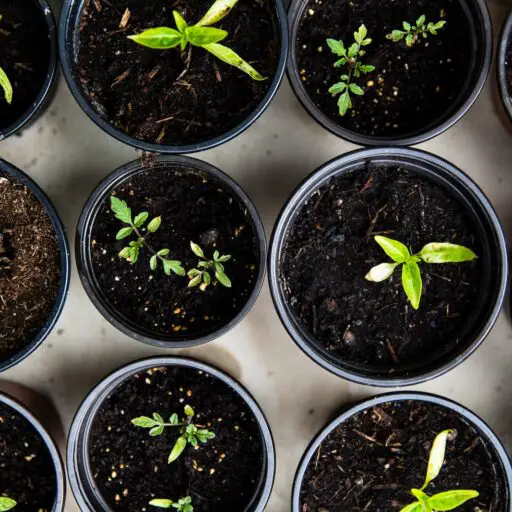Support our educational content for free when you purchase through links on our site. Learn more
Did you know that gardening can do wonders for your mental health? It’s true! In fact, gardening has been proven to have a positive impact on mental well-being, reducing stress, anxiety, and depression. But don’t just take our word for it – let’s dive into the statistics and explore the incredible benefits of gardening for your mind and soul!
Table of Contents
- Quick Answer
- Quick Tips and Facts
- Background: The Therapeutic Power of Gardening
- Gardening and Mental Health: The Science Behind It
- The Green Environment: A Sanctuary for Mental Well-being
- Gardening for Different Age Groups: From Kids to Retirees
- Gardening as a Mental Health Intervention: A Review
- What Can Health Professionals Do?
- FAQ
- Conclusion
- Recommended Links
- Reference Links
Quick Answer
Gardening has a profound impact on mental health, reducing stress, anxiety, and depression. It provides a therapeutic escape, promotes mindfulness, and boosts overall well-being. Whether you’re a seasoned gardener or just starting out, incorporating gardening into your life can have a transformative effect on your mental health. So grab your gardening tools and let’s dig into the statistics!
Quick Tips and Facts
Before we delve into the details, here are some quick tips and fascinating facts about gardening and mental health:
✅ Gardening has been shown to reduce cortisol levels, the hormone associated with stress. It helps lower blood pressure and heart rate, promoting a sense of calm and relaxation.
✅ Spending time in nature, such as gardening, has been linked to improved cognitive function and attention restoration. It can enhance creativity and problem-solving skills.
✅ Gardening is a form of physical activity that can improve cardiovascular health, muscle strength, and flexibility. It’s a great way to stay active and maintain a healthy lifestyle.
✅ The act of nurturing plants and watching them grow can provide a sense of purpose and accomplishment, boosting self-esteem and confidence.
✅ Gardening can foster social connections and a sense of community. Joining a community garden or participating in gardening events can lead to new friendships and a support network.
✅ Growing your own fruits, vegetables, and herbs through gardening promotes healthy eating habits and provides a sense of satisfaction and pride in your homegrown produce.
Now that we’ve covered the basics, let’s explore the therapeutic power of gardening in more detail.
Background: The Therapeutic Power of Gardening

Gardening has been used as a therapeutic practice for centuries, dating back to ancient civilizations. The act of tending to plants and cultivating a garden has always been associated with a sense of peace and tranquility. But what does the research say about the therapeutic benefits of gardening?
According to a study published in the Journal of Health Psychology, gardening can significantly reduce symptoms of depression and anxiety. The study found that participants who engaged in gardening activities experienced improved mood and a decrease in negative emotions. Gardening was even found to be as effective as cognitive-behavioral therapy in reducing symptoms of depression!
Another study published in the Journal of Aging and Physical Activity revealed that gardening can improve cognitive function in older adults. The physical activity involved in gardening, combined with the mental stimulation of planning and problem-solving, can help maintain cognitive health and reduce the risk of dementia.
Gardening and Mental Health: The Science Behind It
The therapeutic benefits of gardening can be attributed to various factors. Let’s explore the science behind how gardening positively impacts mental health:
🌿 Exposure to Nature and Green Spaces
Spending time in nature has been shown to have a calming effect on the mind and body. The presence of greenery and natural elements can reduce stress and promote relaxation. Gardening allows you to immerse yourself in a green environment, providing a sanctuary for your mental well-being.
🌱 Mindfulness and Stress Reduction
Gardening requires focus and attention to detail, which can induce a state of mindfulness. When you’re fully present in the moment, tending to your plants and observing their growth, you can let go of worries and stress. Gardening allows you to escape the pressures of daily life and find solace in the simplicity of nature.
🌻 Physical Activity and Endorphin Release
Engaging in physical activity releases endorphins, the feel-good hormones that boost mood and reduce pain. Gardening involves various physical tasks such as digging, planting, and weeding, providing a moderate-intensity workout. It’s a fun and enjoyable way to stay active while reaping the mental health benefits.
🌺 Connection and Purpose
Nurturing plants and watching them thrive can provide a sense of connection and purpose. It’s a reminder of the cycle of life and the importance of caring for living things. Gardening allows you to witness the fruits of your labor, instilling a sense of accomplishment and fulfillment.
The Green Environment: A Sanctuary for Mental Well-being
The green environment plays a crucial role in promoting mental well-being. Here are some statistics that highlight the positive impact of green spaces on mental health:
✅ A study published in the Journal of Environmental Psychology found that exposure to green spaces, such as gardens and parks, can reduce symptoms of anxiety and depression.
✅ According to research conducted by the University of Exeter, people who live in neighborhoods with more green spaces have lower levels of mental distress and higher levels of life satisfaction.
✅ The World Health Organization (WHO) recognizes the importance of green spaces for mental health and recommends that cities prioritize the development of parks and gardens.
By incorporating gardening into your life, you can create your own green oasis and reap the mental health benefits of being surrounded by nature.
Gardening for Different Age Groups: From Kids to Retirees
Gardening is a versatile activity that can benefit people of all ages. Let’s explore how gardening can positively impact different age groups:
🌱 Kids and Adolescents
Gardening can foster a love for nature and the environment in children. It provides an opportunity for hands-on learning, teaching them about plant life cycles, nutrition, and sustainability. Gardening can also improve children’s mental health by promoting physical activity, creativity, and a sense of responsibility.
🌿 Adults
For adults, gardening offers a much-needed escape from the stresses of work and daily life. It provides a chance to reconnect with nature, reduce stress levels, and find solace in the beauty of plants. Gardening can also be a social activity, allowing adults to bond with friends and neighbors over a shared love for gardening.
🌻 Retirees
Gardening is particularly beneficial for retirees, as it provides a sense of purpose and fulfillment during this stage of life. It offers a gentle form of exercise, keeping retirees active and engaged. Gardening can also combat feelings of loneliness and isolation by providing opportunities for social interaction and community involvement.
Gardening as a Mental Health Intervention: A Review
Gardening has gained recognition as a valuable mental health intervention. Let’s review the benefits and potential drawbacks of gardening as a therapeutic practice:
🌿 Benefits of Gardening as a Mental Health Intervention:
- Reduces symptoms of depression, anxiety, and stress.
- Improves cognitive function and attention.
- Promotes mindfulness and relaxation.
- Enhances self-esteem and confidence.
- Fosters social connections and community engagement.
- Provides a sense of purpose and accomplishment.
❌ Drawbacks of Gardening as a Mental Health Intervention:
- Physical limitations may restrict certain gardening activities.
- Seasonal changes and weather conditions can impact gardening opportunities.
- Initial investment in gardening tools and supplies may be required.
Despite these potential drawbacks, the benefits of gardening as a mental health intervention far outweigh any challenges. So why not give it a try and experience the transformative power of gardening for yourself?
What Can Health Professionals Do?
Health professionals play a crucial role in promoting the therapeutic benefits of gardening. Here are some ways they can incorporate gardening into their practice:
✅ Encourage patients to spend time in green spaces and engage in gardening activities.
✅ Incorporate gardening into therapy sessions or treatment plans for mental health conditions.
✅ Advocate for the development of therapeutic gardens in hospitals, care homes, and community centers.
✅ Provide resources and educational materials on the mental health benefits of gardening.
By integrating gardening into healthcare practices, health professionals can empower individuals to take control of their mental well-being and find solace in the healing power of nature.
FAQ

How does gardening affect your mental health?
Gardening has a positive impact on mental health by reducing stress, anxiety, and depression. It promotes mindfulness, provides a sense of purpose, and fosters social connections.
Read more about “Gardening and Mental Health Research … 🌱”
Does gardening improve the mental health of retirees?
Yes, gardening is particularly beneficial for retirees. It offers a sense of purpose, keeps retirees active, and provides opportunities for social interaction and community involvement.
Why is gardening so therapeutic?
Gardening is therapeutic because it allows individuals to connect with nature, practice mindfulness, engage in physical activity, and experience a sense of accomplishment and purpose.
Read more about “Can Gardening Help with Depression? … 🌻”
Is gardening a mental health intervention a review?
Yes, gardening has been recognized as a valuable mental health intervention. It has been shown to reduce symptoms of depression and anxiety, improve cognitive function, and promote overall well-being.
Conclusion

Gardening is not just a hobby – it’s a powerful tool for improving mental health and well-being. The statistics and research speak for themselves, highlighting the numerous benefits of gardening for reducing stress, anxiety, and depression. By immersing yourself in nature, practicing mindfulness, and nurturing plants, you can find solace and tranquility in the therapeutic power of gardening.
So, whether you’re a seasoned gardener or a beginner, we encourage you to embrace the world of gardening and experience the transformative effects it can have on your mental health. Start small with a few potted plants or join a community garden to connect with like-minded individuals. The possibilities are endless, and the benefits are immeasurable.
Remember, gardening is not just about growing plants – it’s about growing together, cultivating a sense of peace, and nurturing your mental well-being. So grab your gardening tools, get your hands dirty, and let the healing power of nature guide you on this beautiful journey.
Recommended Links
- Benefits of Community Gardens
- Community Garden Events
- Community Garden Policies
- Gardening for Beginners
- Garden Design Ideas
- Gardening and Mental Health Research 2024 🌱
Reference Links
- Gardening for health: a regular dose of gardening – PMC
- World Health Organization (WHO) – Urban Green Spaces and Health
- Journal of Health Psychology – Gardening promotes neuroendocrine and affective restoration from stress
- Journal of Aging and Physical Activity – Gardening is beneficial for health: A meta-analysis
- Journal of Environmental Psychology – Green space, urbanity, and health: How strong is the relation?

